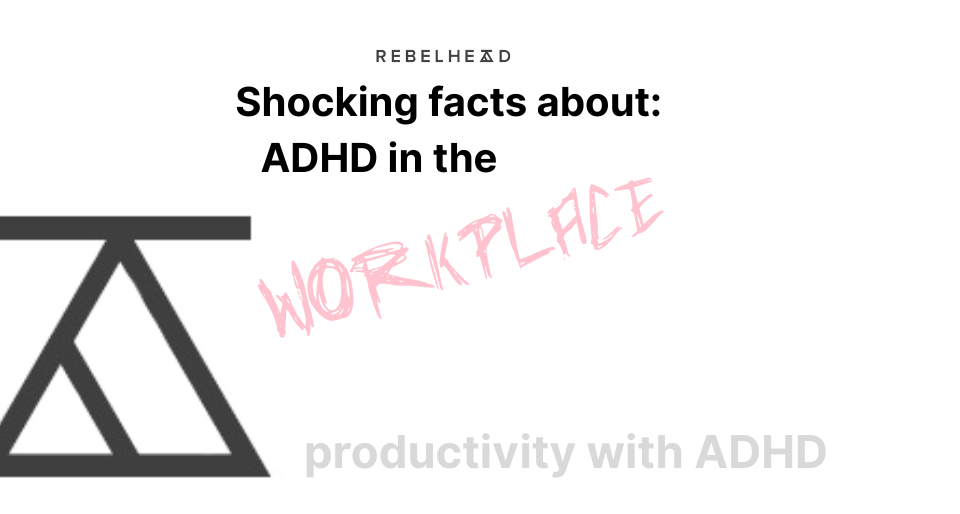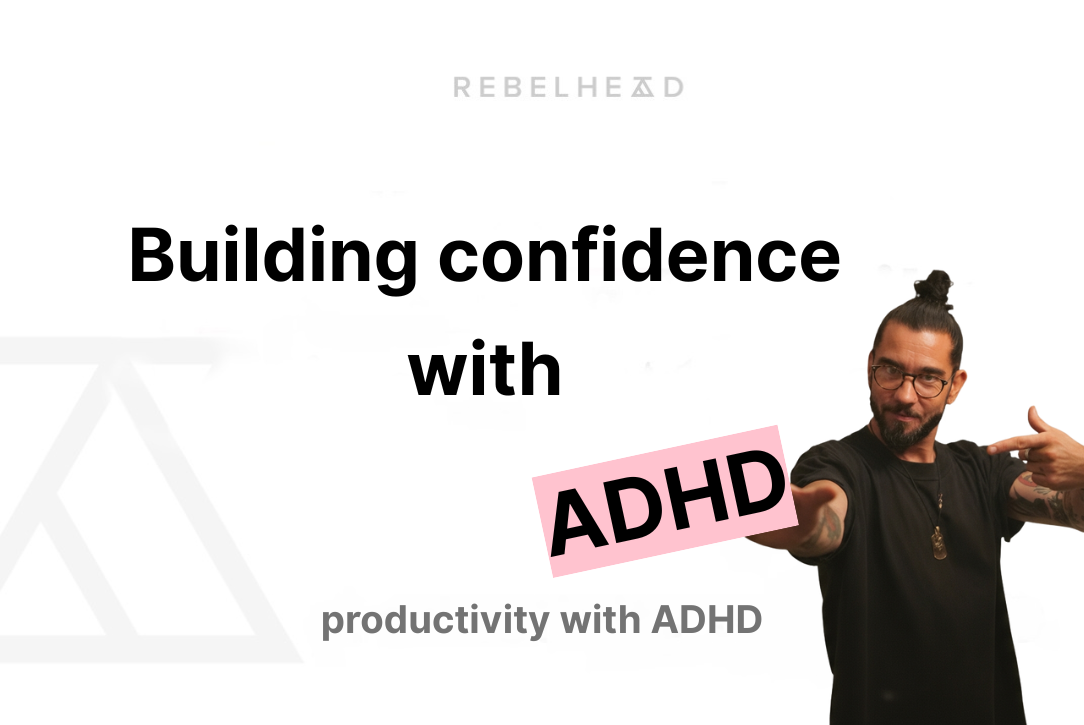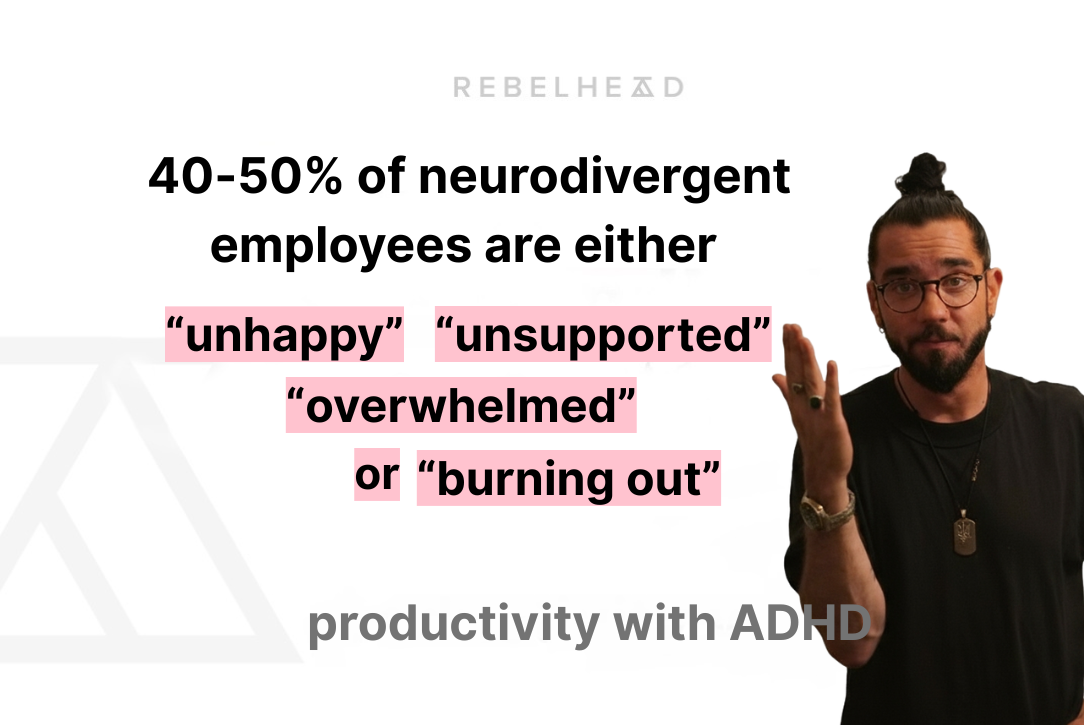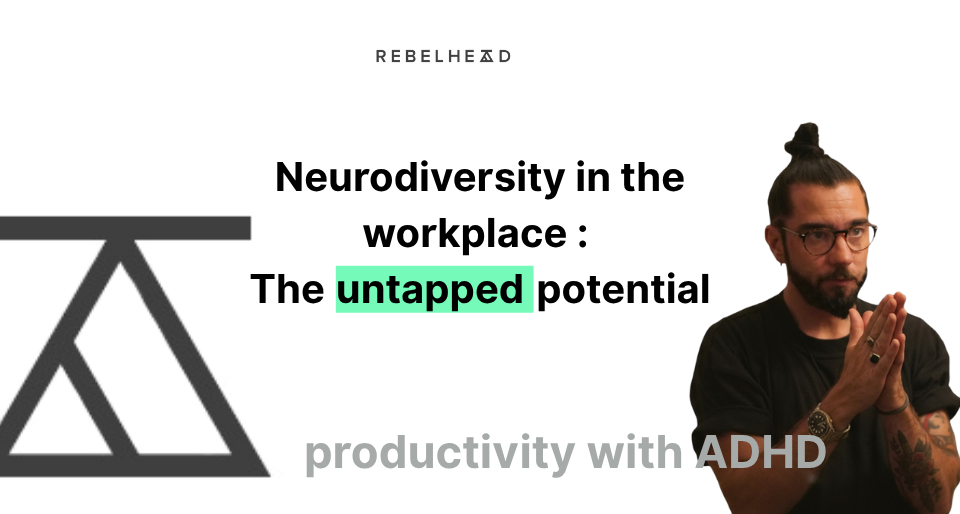ADHD Rates Among Marketers
A recent industry study revealed a striking insight: 38% of marketers surveyed report having a formal ADHD diagnosis, compared with just 3–4% of the general population.
Even more revealing, a staggering 77% of marketers display four or more ADHD symptoms, regardless of a formal diagnosis. This suggests that ADHD traits are disproportionately common in marketing roles, perhaps because the fast-paced, creative nature of the industry attracts or accommodates such cognitive styles.
These figures point to a talent pool that brings creativity, hyperfocus, adaptability, and high energy, traits that can be powerful assets when channeled right.
Why ADHD Might Flourish in Marketing
People with ADHD often thrive in environments that are:
- Fast-paced, with bursts of varied tasks and tight deadlines.
- Creatively demanding, where ideation and innovative thinking are prized.
- Flexible in structure, allowing for multitasking and movement rather than rigid routines.
These environments match well with cognitive patterns seen in ADHD, such as intense hyperfocus on stimulating tasks or comfort with shifting tasks frequently. Many marketers with ADHD may bring heightened creativity, resilience, and the ability to “think outside the box”, traits increasingly recognized as valuable in a hypercompetitive industry.
Challenges and Misconceptions in the Workplace
Despite strengths, ADHD often brings real workplace challenges:
- A significant 87% of employees with ADHD report that the condition has negatively impacted their career.
- Meanwhile, 97% feel they could accomplish more if they could better manage their symptoms.
- 95% feel limited by a lack of available treatment or support options.
- Additionally, 81% of managers say they don’t feel fully prepared to support employees who disclose ADHD.
- Common misconceptions persist, 92% of employees with ADHD believe colleagues hold inaccurate views (e.g., “they just need to try harder”).
- Many face increased micromanagement, 75% report this occurs for them more than for their peers.
Such patterns of misunderstanding and lack of support risk undermining both productivity and well-being, especially in high-potential individuals.
What Companies Can Do: ADHD Accommodations That Work
The good news? Many effective accommodations are simple, low-cost, and far-reaching in their impact. Implemented thoughtfully, they benefit not just those with ADHD, but the entire workforce.
Low-Cost and High-Impact Adjustments
Employers can make the following accommodations to support ADHD employees:
Environmental Changes & Workspace
- Offer quiet or private workspaces, free from distractions.
- Allow noise-cancelling headphones or white noise to aid focus.
- Provide options to work from home or in low-stimulation locations.
Scheduling & Breaks
- Build in flexible work hours, remote days, or scheduling adjustments.
- Schedule structured breaks or allow frequent micro-breaks to manage restlessness.
Task Management & Focus Tools
- Allow uninterrupted work periods or dedicated blocks for focus-intensive tasks.
- Offer AI tools, voice-to-text, structured to-do lists, agendas before meetings, or even “body doubling” techniques (working alongside someone) for enhanced focus.
Manager & Team Training
- Provide ADHD awareness training to managers for better understanding, reduced stigma, and more sensitive support.
- Equip managers to discuss work strategies, affirm strengths, and understand misconceptions.
Policies & Support Infrastructure
- Create neurodiversity support channels or employee resource groups where ADHD employees can connect and share strategies.
- Include neurodiversity assessments and screenings in private health coverage plans—like those offered by Fidelity, BlackRock, and Abrdn.
- Companies like Abrdn also offer webinars, coaching, support drop-in clinics, and reasonable workplace adjustments.
Organizational Benefits of ADHD Inclusion
Productivity & Innovation
- Inclusive practices can lead to an estimated 30% productivity boost by embracing neurodiverse perspectives.
- By integrating ADHD-inclusive approaches, companies validate cognitive diversity as a business strength.
Recruitment & Reputation
- Progressive firms that support neurodiversity, like Specialisterne, combine social missions with tangible productivity gains.
- Similarly, global firms offering supportive assessments build trust and loyalty among current and prospective staff.
Putting It All Together
Table: ADHD Accommodation Toolkit for Employers
| Accommodation Type | Strategies & Tools |
|---|---|
| Workspace Adjustments | Quiet zones, noise cancellation, home-working options |
| Scheduling Flexibility | Flexible hours, structured breaks, scheduling adaptations |
| Task & Focus Aids | AI tools, agendas, structured lists, body-doubling |
| Training & Awareness | ADHD training for managers, debunking myths, leader coaching |
| Support Structures | Internal support groups, neurodiversity specialists, health plan assessments |
| Inclusive Culture | Embrace neurodiversity in hiring, policy, and communication norms |
The marketing industry appears to be a hotbed for ADHD traits, 38% formally diagnosed, and 77% exhibiting multiple symptoms, highlighting a talent base prized for creativity, adaptability, and energy.
Yet this potential is often hampered by managerial misunderstanding, stigma, and lack of tailored support. With 87% of employees reporting career impacts and 97% saying they could achieve more with proper support, organizations face a clear imperative.
Fortunately, accommodations don’t need to be complex or expensive. From quiet workspaces and flexible schedules to manager training and AI-supported tools, small changes can yield substantial benefits, not just for employees with ADHD, but for company productivity, innovation, and inclusivity.
Forward-thinking companies like Fidelity, Abrdn, and BlackRock are already integrating screening and support programs, while inclusive firms like Specialisterne have built entire models around
neurodivergent strengths.
By recognizing ADHD as a cognitive asset and building truly inclusive environments, organizations can unlock hidden potential, drive innovation, and foster a workplace culture where everyone thrives.
Links:




